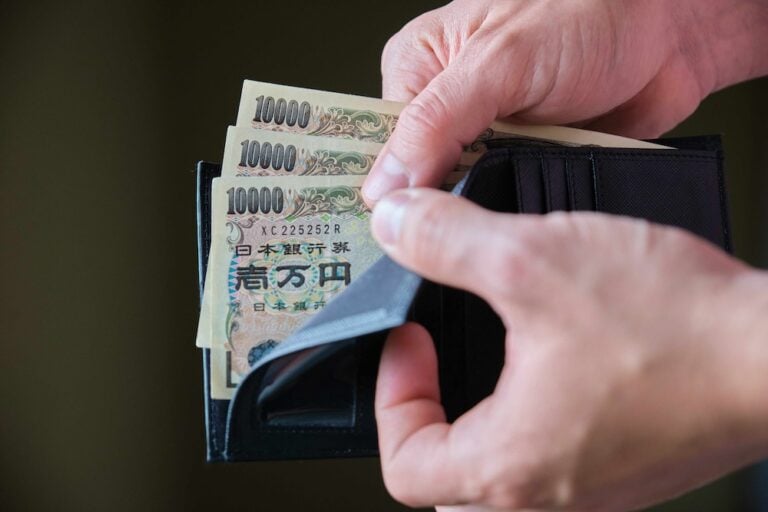
Japan, a country known for its technological advancements and rich cultural history, is often perceived as a place of boundless economic opportunities. Many people worldwide are drawn to this East Asian nation in search of lucrative careers. Average Salary in Japan is a phrase that frequently ignites the imagination with figures of grandiosity. However, what are the myths and realities surrounding this subject? This article meticulously examines this intriguing topic.
Debunking Myths: The Illusions Surrounding Japanese Salaries
Myth 1: Japanese Salaries are Uniformly High
Let’s begin by shattering the misconception that everyone in Japan rakes in heaps of money, regardless of job sector or work experience. While the Japanese yen may indeed conjure images of a prosperous lifestyle, the reality is far more nuanced. Your earnings are significantly influenced by a range of factors, including your industry, experience level, and location.
For instance, the industry average in fields like education and tourism hovers around 4-5 million Japanese Yen (JPY) (approximately $27,000 to $34,000 USD), which is relatively modest compared to international standards. On the other hand, industries like finance, tech, and medical sectors have higher benchmarks. In these fields, the wages can easily surpass 10 million JPY (around $67,000 USD), especially if you possess substantial work experience and specialized skills. Additionally, age also plays a crucial role in determining salary scales, with older, more experienced workers generally commanding higher salaries.

Myth 2: Bonuses are Rare
Another myth that deserves a reality check is the perception that bonuses are hard to come by in the Japanese work environment. Contrary to this belief, the Japanese industry, on the whole, is quite generous with bonuses. In fact, it’s an integral part of their wage structure, commonly doled out twice a year—usually during summer and winter.
For many employees, bonuses can boost their yearly earnings by 15-20%, making a considerable difference in their average annual income when converted to Japanese yen. This perk is not limited to any specific job sector; it is a widespread practice that contributes significantly to the average wages in Japan.
Myth 3: Freelancers and Part-timers Earn Minimally
While it’s easy to assume that freelancers and part-time workers scrape the bottom of the earnings barrel, the reality in Japan tells a different story, particularly in the rapidly expanding gig economy. Specialized freelance roles in graphic design, programming, and content creation often pay well above the industry average for traditional part-time roles.
For example, a freelance programmer with several years of experience can earn considerably more in Japanese yen than a convenience store clerk or restaurant staff member. Thus, the scope for earning in freelance and part-time roles is increasingly becoming as diverse as the full-time job sector in Japan.
So, when you’re looking to understand the average salary in Japan, remember that it’s a complex landscape shaped by factors such as experience level, industry, and even age. Debunk the myths, and you’ll find that the economic realities are both challenging and rewarding in their own right.
Reality 1: The Gender Pay Gap Persists
In the realm of average salary in Japan, it’s crucial to address the unsettling reality of the gender pay gap. Despite Japan being a highly developed nation with numerous companies advocating for equality, the disparity in salary is glaringly evident.
On average, women with the same qualifications—be it a bachelor’s degree or master’s degree—earn approximately 73% of what their male counterparts make. The news of this wage imbalance has been an ongoing issue, causing many employees to question the growth opportunities available for women in the workforce. While some companies have initiated measures for salary increments based on performance rather than gender, the overall landscape of salaries in Japan still requires significant improvement.
Reality 2: The Tokyo-Centric Earnings Disparity
When discussing salary ranges in Japan, the Tokyo-centric earnings disparity is impossible to ignore. Tokyo serves as the financial and business epicenter of Japan’s economy, attracting employees with promises of a higher salary range. Indeed, the average salary in Tokyo can see an increase of 20-30% when compared to other regions. However, it’s crucial to consider that this increase in salary is often offset by the higher cost of living in the city. For many employees, especially those without a master’s degree or higher qualifications, the inflated salaries might not lead to a better quality of life.

Reality 3: Seniority-Based Pay System
Japan is renowned for its seniority-based pay system, a framework that has shaped the salary ranges and growth opportunities for employees for decades. In this setup, longevity within a company isn’t just a matter of loyalty—it also translates into a financial advantage.
In most Japanese companies, employees can anticipate a consistent salary increment as they occupy a position for an extended period. Unlike Western models that often emphasize performance or skill-based increments, the Japanese model focuses on rewarding long-term commitment. Therefore, whether you’re an employee with a bachelor’s degree or a higher-level master’s degree, the time you invest in a single company could significantly impact your salary in Japan.
The Impacts of COVID-19 on the Average Salary in Japan
The COVID-19 pandemic has sent ripples through various aspects of life, and the subject of salary in Japan is no exception. Before diving into the specifics, it’s important to acknowledge that the average salary in Japan varies significantly depending on a host of factors. These include experience level, job type, and even geographical location—Tokyo, for instance, offers different wage prospects than other regions.
Remote work quickly became a mainstream option for workers in Japan as companies adapted to the changing circumstances. While this shift provided a level of job security for many, it has also resulted in a change in salary range for several occupations. Traditional roles that were reliant on physical presence, such as retail and hospitality, experienced salary cuts. This contraction affected the average salary in Japan, dragging it downward for specific sectors.
Conversely, job categories like healthcare, IT, and e-commerce have experienced a surge in average earnings. These sectors already had a higher average salary compared to others, and the pandemic further widened the gap. For example, business analysts specializing in data management for e-commerce companies have seen their salaries go up in response to the increased demand for online shopping solutions.
It’s also worth noting that the pandemic’s impact on wages in Japan hasn’t been uniform across experience levels or gender. For instance, younger workers with less experience have generally faced more significant wage reductions, while professionals with specialized skills have managed to maintain or even increase their earnings. Additionally, the wage gap between men and women has come under scrutiny during these times. Reports suggest that women, on average, have been disproportionately affected by salary cuts and job losses, which is a concerning trend that impacts the overall average salary in Japan.

Regional Differences in Japan’s Average Salary
Urban vs. Rural Areas
While Tokyo and other major cities like Osaka and Yokohama may lure people with the promise of higher salaries, it’s not the whole picture when examining the average income in Japan. Venturing into rural areas, you’ll find that the earning figures shift dramatically. Workers in smaller towns generally receive lower salaries than their city counterparts. However, this shouldn’t be quickly dismissed as a disadvantage.
Smaller towns and rural areas offer a plethora of benefits that could outweigh the lower income. First and foremost is the substantially reduced cost of living. Just as the city average salary is high in Tokyo due to higher costs, rural areas might provide a more balanced lifestyle financially. Moreover, the sense of community and the tranquillity often associated with rural life can be invaluable, especially for those who value these aspects.
Age Factors and Salary Dynamics
When it comes to understanding the average salary in Japan, age plays a crucial role that’s deeply rooted in Japanese cultural norms. The concept of seniority is highly valued in Japan, which directly influences the salary levels of workers across various industries. Unlike some Western economies where talent and skills might outshine age, in Japan, the older you are, the more likely you are to see an increase in your salary.
The Traditional Model
Traditionally, workers in Japan see their salaries increase as they climb the age ladder. This is because the Japanese labor system often aligns salary increases with the length of time one has been employed rather than purely basing it on performance or skill level. Consequently, people in senior positions tend to be older individuals who have spent considerable time within the company or the industry.
Industries with Age-Dependent Salaries
Not all industries in Japan follow this age-centric salary model to the same extent. Sectors like technology and finance, which are more globally influenced, are gradually shifting towards performance-based salary systems. However, traditional Japanese industries like manufacturing and retail are more likely to adhere to the age-dependent model.
The Changing Landscape
While the notion that older workers earn more is generally true in Japan, it’s important to note that societal attitudes are slowly changing. Younger generations are increasingly questioning the sustainability and fairness of this system, especially as the age demographics shift in the country. With a growing older population, there’s a societal discussion about whether the average salary can continue to increase purely based on age.
Average Salary Range: A Sectoral View
When it comes to unraveling the myths and realities of the average salary, one must consider a sectoral view to better understand how different professions are valued. Salaries in Japan can vary greatly depending on factors such as education level, age, and even gender. Below we delve into more details about the salary in various sectors in Japan, particularly focusing on Tokyo, which often sets the city average salary benchmarks for the country.
Healthcare Sector
Medical professionals in Japan can anticipate an average income that falls in the range of 10 million JPY (approximately $67,000 USD) to 30 million JPY (approximately $202,000 USD) per annum. These numbers can fluctuate based on the person’s specialization, years of experience, and education level. It’s worth noting that men in the healthcare field often command higher salaries than women, reflecting a gender wage gap that is a topic of ongoing discussions in Japan.
Information Technology (IT)
The IT industry in Japan offers lucrative prospects for workers proficient in high-demand areas. People skilled in cybersecurity and Artificial Intelligence (AI), for instance, can expect to earn an average salary in Japan between 5 million JPY (approximately $33,660 USD) and 8 million JPY (approximately $53,860 USD). IT positions in Tokyo, given the city’s status as a tech hub, can offer even higher salaries on average, with some professionals taking home as much as 10 million JPY (approximately $67,320 USD) a year.
Education Sector
The education sector in Japan presents a broader range of salaries. Educators in the country typically earn an average salary of 2 million JPY (approximately $13,478 USD) to 3.5 million JPY (approximately $23,586 USD) annually. However, those with specialized certifications or advanced educational levels can expect to earn much more. Experience and age can also significantly influence salary in this sector. Generally, men in education tend to earn slightly more than women, although the gap is smaller compared to other sectors.
Recruitment
In Tokyo, the role of recruiters is pivotal, especially when it comes to sectors like IT that are booming and show no signs of slowing down. Salary data reveals that the earnings of recruiters in the capital city are above the national average, largely driven by the demand for specialized talent in various industries. Men in the recruitment field, much like their female counterparts, are often compensated with performance-based bonuses and commissions, which elevate their average earnings well beyond base salary figures.
The surge in demand for global IT talent has significantly benefited recruiters, adding value to their services and, consequently, increasing their salaries. These professionals are crucial in connecting employers who are in search of specialized skills with prospective employees seeking promising opportunities. The vast amount and variety of talent in Tokyo make the tasks of recruiters both challenging and rewarding, and their compensation often mirrors this intricacy.
Entry-Level Roles
For those involved in what are traditionally referred to as ‘entry-level’ roles—such as hospitality, retail, and construction—the job market presents a different set of challenges and opportunities. While the term “unskilled labor” is often used, it’s worth noting that these jobs require a distinct set of skills and contribute significantly to the economy.
In Tokyo, the high population density leads to a substantial number of opportunities in these sectors. However, this also results in a larger pool of potential employees, which can create competitive pressures on wages. In Japan, a developed nation with high living costs, these roles often offer an average hourly rate ranging from 1,000 JPY to 1,200 JPY (approximately $7 to $8 USD), although this can vary based on factors like location and level of responsibility.
Interestingly, many of these roles are often taken up by students or young adults who still live at home, partly to sidestep Tokyo’s high cost of living while gaining work experience or supporting their studies. In such cases, the average hourly wage, though modest, may not be the sole income in the household or the primary factor in their standard of living.
Hidden Costs of Living in Japan
Understanding the average salary in Japan is essential, but to get an accurate view of your potential financial landscape, it’s critical to delve into the hidden costs of living in the country. Data suggests that, particularly in Tokyo, the expenditures can dramatically fluctuate based on a range of variables, skewing the average calculations. Let’s break this down into key categories.
Taxes
When most employees in Japan look at their average salary offerings, they often overlook the inevitable: taxes. The tax system in Japan is progressive, which means the percentage you owe increases with your income.
Especially if you’re residing in Tokyo, where a metropolitan tax is also levied, it’s essential to factor this cost into your budgeting. For example, the Japanese national tax ranges from 5% to 45%, and when you add in the local and metropolitan taxes in Tokyo, you can see deductions up to 50% on the higher income category. This is a critical aspect that shouldn’t be glossed over when evaluating the average salary, as it offers a more grounded overview of what you can truly expect to take home.
Cost of Living
Another key factor is the cost of living, which can devour a considerable chunk of the average salary in Japan. From rent to ramen, the daily costs can add up swiftly, and they can be particularly elevated in Tokyo. For employees in the city, the average rent for a one-bedroom apartment in the central area can range from 100,000 JPY (approximately $673 USD) to 300,000 JPY (approximately $2,020 USD) per month, depending on the location and amenities.
It’s not just about housing. Food expenses, transportation, healthcare, and even entertainment play a significant role in daily expenditures. On average, living in Tokyo can cost between $1,347 USD (approximately 200,000 JPY) to $2,357 USD (approximately 350,000 JPY) per month, excluding rent. This data should be taken into account to provide an accurate overview when discussing the reality of living costs as they correlate with the average salary in Japan.
So, the next time you’re calculating the average salary and weighing job offers, especially in Tokyo, consider these often-overlooked costs. They provide not just an overview but a detailed insight into how far that “shiny salary” can truly take you in Japan’s bustling metropolis and beyond.
Final Thoughts: Reality Versus Perception
Navigating the job market in Japan, particularly in bustling centers like Tokyo, necessitates a balanced understanding of the economic factors at play. When discussing the average salary in Japan, men and women often encounter different realities. Although gender pay disparities are a global issue, they are particularly noteworthy in Japan’s traditional corporate culture. Both men and women need to be vigilant job seekers, keen on understanding not just their roles but also the industry-specific nuances that could affect their salary prospects.
It’s essential for a job seeker to be aware that while Tokyo offers a myriad of high-paying opportunities due to its status as a global financial hub, the cost of living can counterbalance the salary benefits. On the other hand, industries like technology, finance, and healthcare generally promise higher remunerations compared to other sectors. So, whether you’re a man or a woman looking for a job in Tokyo or elsewhere in Japan, identifying the right industry can be a significant factor in your earnings.
To wrap up, the myths surrounding the average earnings in Japan often cloud the tangible aspects that should be considered. A well-informed job seeker knows that wages aren’t just a simple number but a complex result of location, gender, and industry among other factors. Don’t be swayed by stereotypes or misconceptions; arm yourself with the accurate, comprehensive information presented in this article as you navigate the realities of Japan’s job market.













